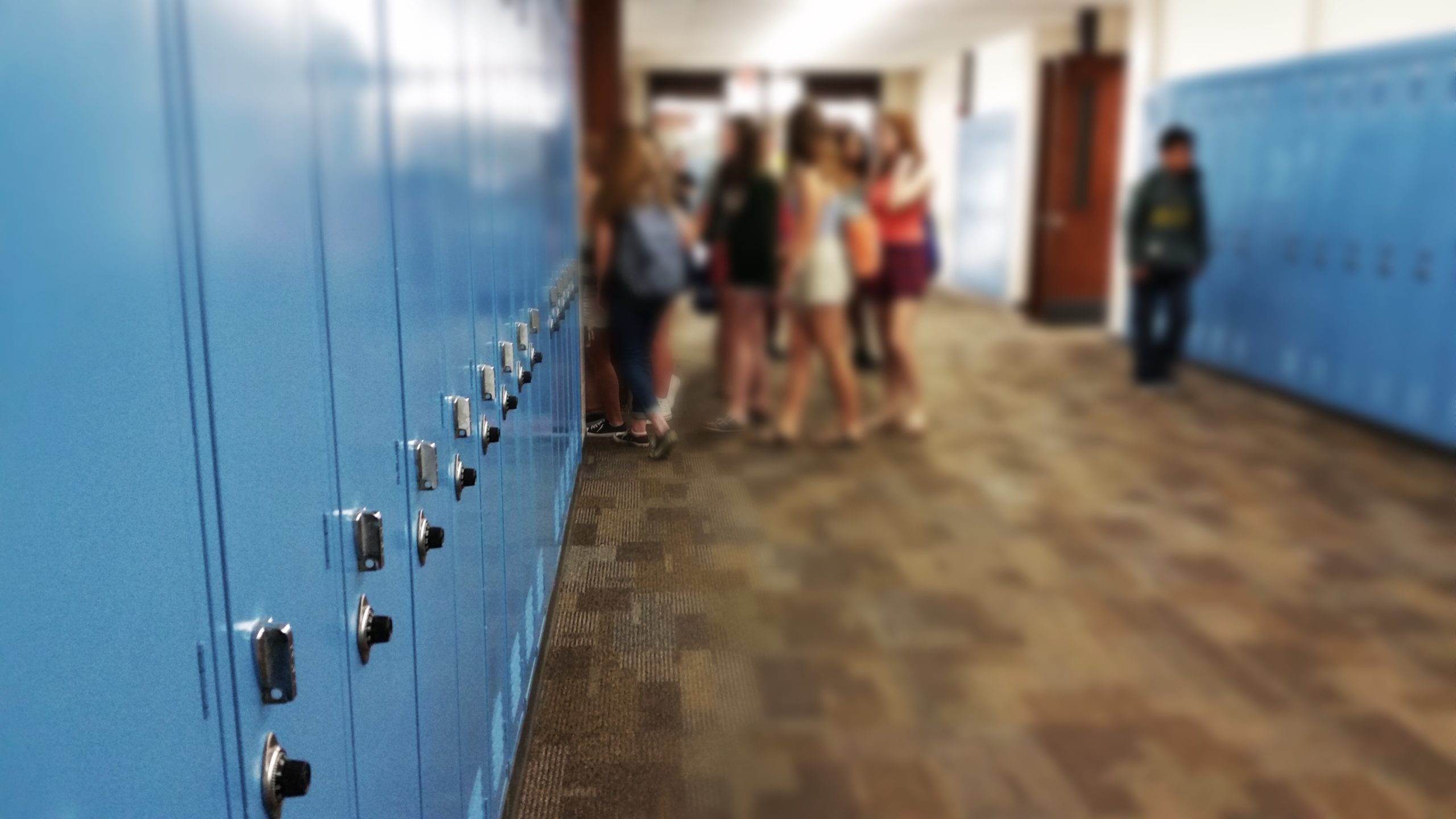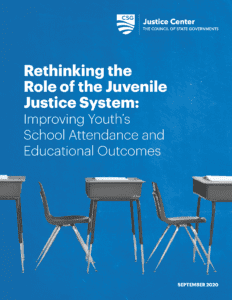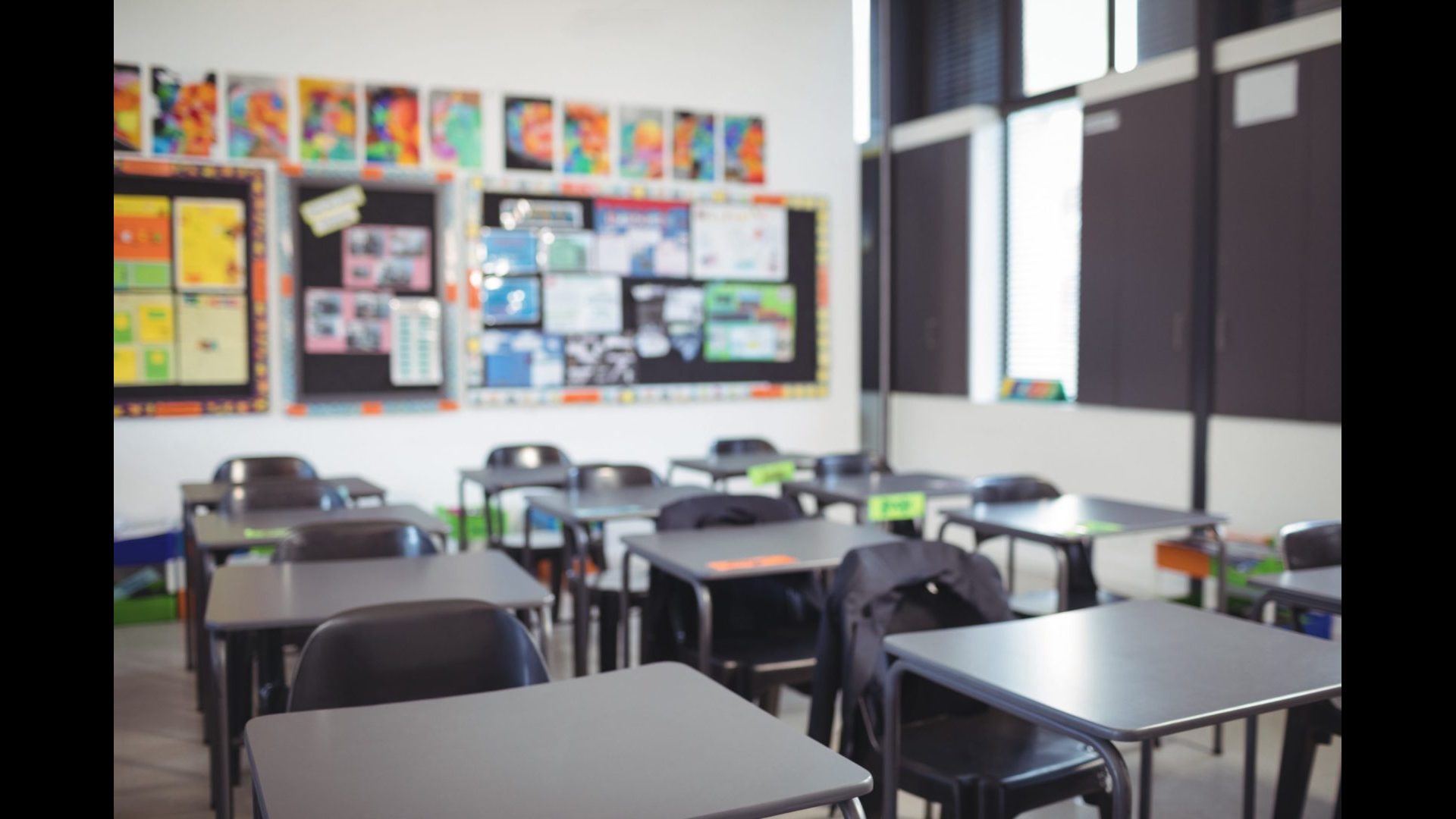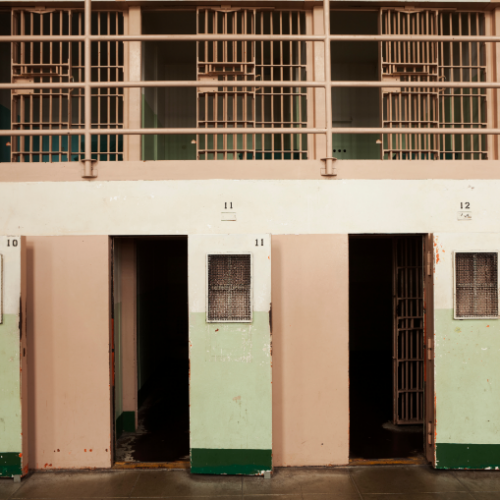
New Report Reveals South Carolina Student Absences Got Worse When Juvenile Justice Systems Stepped In
 Many states and school districts across the country use the juvenile justice system to address chronic absences and other school performance issues. But new, first-of-its-kind research from The Council of State Governments (CSG) Justice Center raises significant concerns about this approach.
Many states and school districts across the country use the juvenile justice system to address chronic absences and other school performance issues. But new, first-of-its-kind research from The Council of State Governments (CSG) Justice Center raises significant concerns about this approach.
Rethinking the Role of the Juvenile Justice System: Improving Youth’s School Attendance and Educational Outcomes reveals that kids involved in the juvenile justice system in South Carolina not only didn’t experience attendance improvements, but their attendance actually got worse; kids missed five more days of school on average than they had in the year before their juvenile justice involvement. Even kids who received court oversight and the threat of further sanctions specifically designed to get them to attend school more did not experience any improvements in their attendance compared to their peers.
There’s little argument that school attendance and completion have long-term benefits, including reduced crime and improved labor market earnings. So, it’s understandable that state and local leaders are concerned about kids who struggle with excessive school absences. But the reasons students aren’t engaged in class and struggle with absences were individual and complex before COVID-19 was thrust into every American family. And they’re likely to be even more complicated now.
Using juvenile justice sanctions to motivate changes to kids’ school behavior is an issue many states struggle with. In about half of states, truancy is a crime. Even in states that have decriminalized truancy, youth can frequently still be sent to court for too many school absences. In 2018, U.S. schools referred more than 60,000 students—disproportionately kids of color—to court for truancy. Since 2010, referrals for almost all other types of juvenile offenses have declined, but court referrals for truancy have actually increased in recent years.
The CSG Justice Center study also raises questions about whether some schools’ policies and practices actually make it harder for justice-involved youth to engage and succeed in school. Some schools in South Carolina, and in other communities across the country, take punitive measures when kids become involved with the juvenile justice system, including barring them from attending in-person classes, automatically suspending or expelling them, and requiring them to attend alternative schools. These approaches make it harder, not easier, for kids to stay connected to the positive adults, peers, and activities that are critical to successful education.
This new research compels policymakers, judges, attorneys, probation directors, and educators to wrestle with an important question: are juvenile justice system involvement and school disciplinary measures really the most appropriate and effective ways to help kids succeed in school?
Read the full report.
 Rethinking the Role of the Juvenile Justice System: Improving Youth’s School Attendance and Educational Outcomes
Rethinking the Role of the Juvenile Justice System: Improving Youth’s School Attendance and Educational Outcomes
This webinar presents findings from an unprecedented study conducted by the CSG Justice Center on the impact of…
About the Author

A positive school experience, where a child feels secure, is essential for their well-being. However, for many children…
Read MoreWhen returning to their communities from criminal justice settings, people with behavioral health needs face barriers in accessing…
Read More Supporting Children of Incarcerated Parents: Reimagining School and Community Collaboration
Supporting Children of Incarcerated Parents: Reimagining School and Community Collaboration
A positive school experience, where a child feels secure, is essential for…
Read More Bridging Communities and Correctional Systems: Q&A with CSG Justice Center Advisory Board Member Commissioner Nicholas Deml
Read More
Bridging Communities and Correctional Systems: Q&A with CSG Justice Center Advisory Board Member Commissioner Nicholas Deml
Read More
 Assigned to the Cloud Crew: The National Incarceration Association’s Hybrid Case Management for People with Behavioral Health Needs
Assigned to the Cloud Crew: The National Incarceration Association’s Hybrid Case Management for People with Behavioral Health Needs
When returning to their communities from criminal justice settings, people with behavioral…
Read More Meet the Medicaid and Corrections Policy Academy Mentor States
Meet the Medicaid and Corrections Policy Academy Mentor States
New Hampshire Department of Corrections Commissioner Helen Hanks presents at the Medicaid…
Read More Taking the HEAT Out of Campus Crises: A Proactive Approach to College Safety
Taking the HEAT Out of Campus Crises: A Proactive Approach to College Safety
The sharp rise in school shootings over the past 25 years has…
Read More










